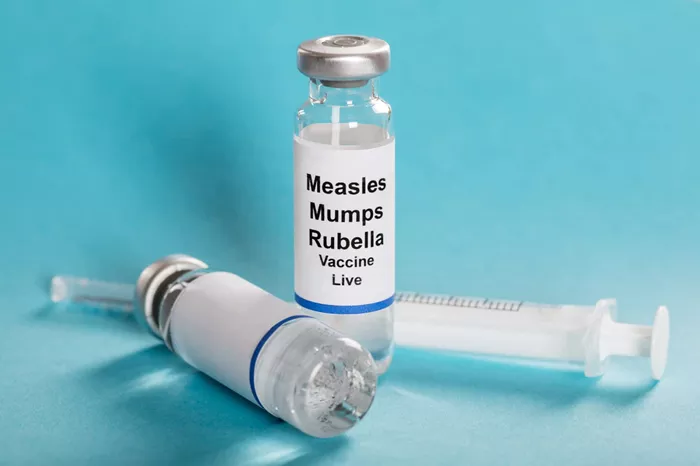Measles vaccination rates for young children may be significantly lower than previously reported, which could lead to the United States losing its “elimination status” for the disease. This decline in vaccination rates poses a serious public health threat.
Benjamin Rader, a computational epidemiologist at Boston Children’s Hospital, warns that the decrease in vaccinations is particularly concerning for the group most vulnerable to measles—young children. Rader’s recent research highlights this issue, emphasizing that it could have serious consequences for public health.
So far in 2024, there have been over 420 reported cases of measles, surpassing the total number of cases in the previous year. Most of the cases are concentrated in West Texas, where an outbreak has spread to nearby states. Other cases, linked to international travel, have been identified in various states. The Centers for Disease Control and Prevention (CDC) reports that the majority of those affected are unvaccinated or have an unknown vaccination status.
Measles is one of the most contagious diseases in the world. Small areas with low vaccination rates create an opportunity for the virus to spread. Rader warns that if measles continues to spread unchecked, it could shift from isolated outbreaks to an endemic disease, becoming a regular presence in the U.S.
Concerns About Vaccination Coverage
The CDC recommends two doses of the MMR vaccine (measles, mumps, and rubella) for children: the first at 12 to 15 months and the second between 4 and 6 years old, before entering school. According to CDC data, 92.7% of kindergarteners have received both doses of the MMR vaccine. However, Dr. Brian Clista, a pediatrician in Pittsburgh, argues that this coverage is still below the 95% threshold needed for herd immunity.
Rader notes that the true vaccination rate may be even lower than CDC estimates. This is because the CDC data primarily reflects older children who have already entered kindergarten, while younger children under the age of 5 are not fully represented in the data.
In a study published in February in the American Journal of Public Health, Rader and his team surveyed nearly 20,000 parents of children under 5 years old from July 2023 to April 2024. They found that only 71.8% of children had received at least one dose of the MMR vaccine, much lower than the CDC’s reported figure. The study used a digital surveillance platform that has also been used by the CDC to track at-home COVID testing.
Rader emphasized that while the CDC’s data is accurate, it doesn’t offer a complete picture of vaccination coverage.
Pandemic Effects and Vaccine Hesitancy
Dr. Scott Roberts, an expert in infection prevention at Yale School of Medicine, described the study’s findings as “worrisome.” He believes that the COVID-19 pandemic likely worsened the situation by disrupting healthcare access and increasing vaccine hesitancy. Many children who fell behind on vaccinations during the pandemic may not have caught up on their schedules, especially if they were homeschooled or had extended absences from school.
Rader agrees, pointing out that the pandemic had a significant impact on vaccination rates, not only for COVID-19 but also for routine childhood vaccines like MMR.
The study has limitations, as it relied on self-reported data from parents rather than more objective data collected by the CDC through kindergarten entry forms. While Rader’s study did not specify the exact ages of the children under 5 who were unvaccinated, it suggests that vaccination rates may be even lower than previously thought.
Conclusion
The decline in measles vaccination rates is a concerning trend, with potential long-term consequences for public health. The U.S. is at risk of losing its “elimination status” for measles if vaccination rates do not improve. Continued monitoring and efforts to increase vaccination coverage are essential to protect vulnerable populations and prevent future outbreaks.
Related topics:
- Want To Age Well? Scientists Recommend These Eating Habits
- What’s the Best Natural Remedies for Menopause?
- Shampoo Recalled Due To Bacterial Contamination Risk


